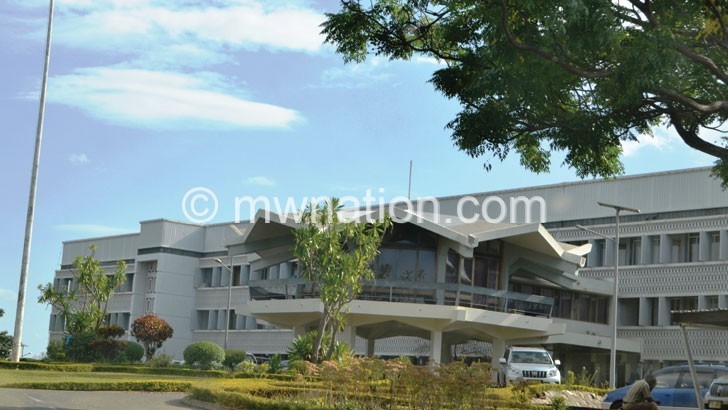4 MDAs collectively overspend by K9.1bn
Four government ministries, departments and agencies (MDAs), including State Residences, have emerged as the major culprits by overspending their 2018/19 budget allocations and collectively overshooting their budget ceilings by K9.1 billion.
Besides State Residences which, at K4.5 billion above its allocation is the biggest culprit, the other MDAs are Ministry of Gender, Children, Disability and Social Welfare; Ministry of Local Government and Rural Development; and Ministry of Health.

Reads the audit report in part: “The following is an analysis of the votes under development budget. Four votes on central government recorded an overexpenditure of K4.6 billion; these are Vote 320 Ministry of Gender, Children, Disability and Social Welfare K3.5 billion; Vote 120 Ministry of Local Government and Rural Development K813.8 million; Vote 310 Ministry of Health K313.5 million.”
State Residencies tops the list with an over expenditure of K4.5 billion in the recurrent budget while Ministry of Gender, Children, Disability and Social Welfare leads in the development budget.
The revelations are contained in a Report of the Auditor General on the accounts of the Government of the Republic of Malawi for the Year Ended 30th June 2019 submitted to the Office of the Speaker with a covering letter from Acting Auditor General Thomas Makiwa dated January 21 2020, which shows that K35 billion has not been accounted for and was probably stolen in MDAs in the 2018/19 fiscal year alone.
The major findings by value of mismanaged funds in the 2018/19 financial year represent a 1 066 percent rise from the K3 billion not accounted for in the 2018/19 financial year.
In an executive summary of the report, Makiwa observes that MDAs have failed to comply with various financial laws, regulations and procedures.
The report has also revealed that about eight votes under the development budget under-spent with K73.8 billion. These include Vote 274 Roads Fund Administration (K20.7 billion), Vote 190 Ministry of Agriculture, Irrigation and Water Development (K14.1 billion) and Vote 170 the then Ministry of Civic Education, Culture and Community Development (K1.9 billion).
Makiwa explained that the under-expenditure on the development votes could be a reflection of projects not fully implemented due to delays and low disbursement of funds from project donors and/or lack of expertise on implementation.
According to the report, overall the state of affairs of the development budget as at June 30 2019 was a cumulative surplus of K125.8 billion, registering an increase of K82.2 billion from a cumulative surplus of K43.5 billion recorded at the end of the 2017/18 financial year.
In his recommendations to MDAs, Makiwa, who acknowledged that despite providing guidance, most controlling officers did not take into action the provided recommendations.
He stressed the need for the controlling officers to heed the recommendations which include timely preparations of bank reconciliations and that government should find ways and means of how to deter recurrence of audit findings in MDAs.
In the executive summary of the report, Makiwa reports that an overview of the general picture shows that MDAs have failed to comply with various financial Laws, regulations and procedures.
The shortcomings, especially as they relate to payments without supporting vouchers and missing payment vouchers, invoke memories of Cashgate—the plunder of public resources at Capital Hill exposed in September 2013 through the shooting of then Ministry of Finance budget director Paul Mphwiyo outside the gate of his Area 43 residence in Lilongwe.
Former president Joyce Banda ordered a forensic audit which British firm Baker Tilly undertook over a randomly-selected six-month period between April and September 2013. It established that about K24 billion was siphoned from public coffers through dubious payments, inflated invoices and goods or services never rendered.
In May 2015, a financial analysis report by audit and business advisory firm PricewaterhouseCoopers (PwC) also established that about K577 billion in public funds could not be reconciled between 2009 and December 31 2014. The amount was, however, revised downwards to K236 billion after another forensic audit.





